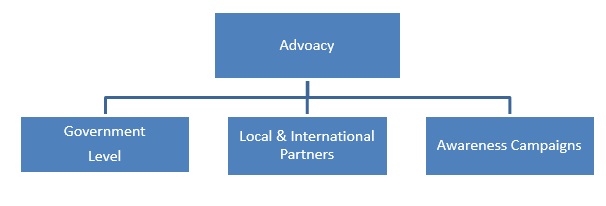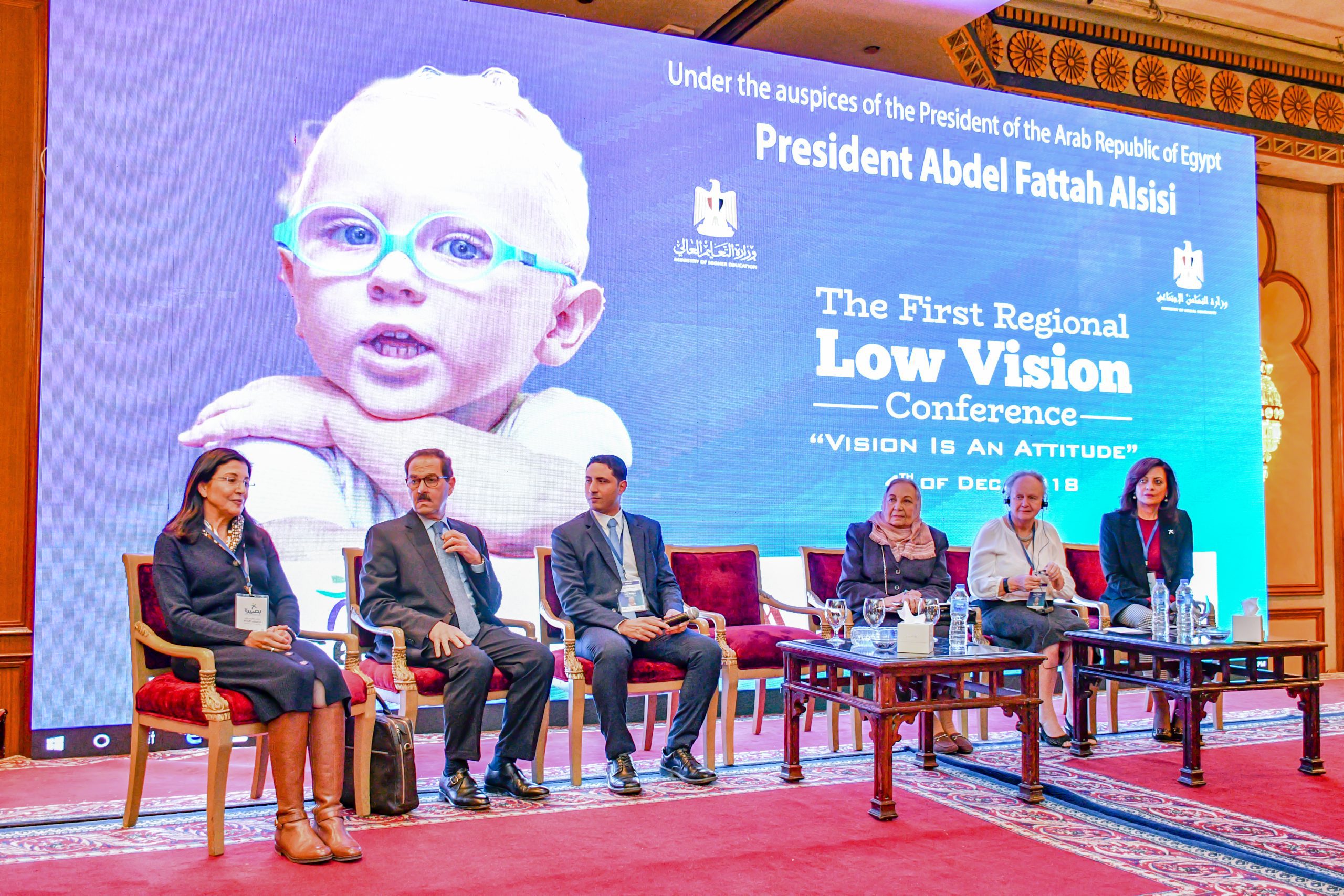ADVOCACY

GOVERNMENT LEVEL
To create an inclusive society for people with visual impairment we have built strong partnerships with major government bodies. One of our main assets is that Ms. Mabrouk is a member of the National Council for Disability Affairs in Egypt. Ms. Mabrouk advocates for the special needs of VIPs and the making of laws that specify the needs of each disability rather than treating them all as equal. The three main partner ministries we work with are the ministry of education, the ministry of health & population, and the ministry of social solidarity. We work with vital government partners on:
Policies
Creating, amending and implementing policies related to disabilities in general and specifically VIPs. Some of our work in influencing policies include Universities.
Universities: In 2016 we were able to get the ministry of higher education to accept the visually impaired in all university departments with no discrimination if they meet the requirements. Before, they only used to be accepted in some literature departments.
Banks : VIPs needed to have a guardian to open a bank account. baseera took the initiative to advocate for the independence of the VIPs in managing their banking accounts, and coordinated with the banks union in Egypt to change this. As a result, there are three banks in Egypt (2 of them are the biggest in Egypt: El Ahly Bank and CIB) that accept VIPs to independently open and manage their accounts without a guardian.
Education : In promoting the full independence of VIPs, we succeeded in getting the Ministry of Education’s approval on allowing the VIPs to take their exams on the computer rather than the traditional method, which requires a delegated person to accompany the VIP and write on their behalf. This year two visually impaired female students, who have been enrolled in our programs since they were infants, took the 6th-grade government test on the computer. This is considered a significant step towards fully integrating VIPs in mainstream schools. We will continue promoting this method until it becomes regularly applied in VIPs education. We have shown the possibilities of inclusive education for the visually impaired by putting it into practice. This has been the key factor to success. A mind shift has occurred within the ministries and schools, from discussing inclusion and being skeptical to acting and seeing positive results. More schools are now accepting VIPs. The ministry of education is eager to understand the practical implications of inclusive education. We coordinate with the ministry of education by providing them with guidance and advice. Moreover, the special needs students were not admitted to Technical Education by Law. After lobbying by baseera, low-vision students are now accepted.
VITAL LOCAL AND INTERNATIONAL PARTNERS
We have vital local and international partners to provide the best services for the VI community and advocate for their rights. We have created a sustainable network of other NGOs which works for the rights of people with disabilities. One of our major networks is the “Network for changing Policies for Inclusive Education,” among our partners in this initiative such as:
- CARITAS (which works on enhancing the lives of people with mental disabilities)
- NEDA’ (which works with people with hearing disabilities)
- ADVANCE (which works on developing skills of children with special needs)
We also coordinate with international partners who work in developing the lives of VIPs. Baseera’s staff every year attend international conferences and summits that address the needs of VIPs and discuss new methods, technologies, and tools to address these needs. We have strong connections with international organizations that provide us with important technical assistance and know-how skills, such as:
- Visio International Organization, The center of expertise for blind and partially sighted people of all ages, including those with additional disabilities.
- International Council for Education of People with Visual Impairment (ICEVI); A global association of individuals and organizations that promotes equal access to appropriate education for all children and youth with visual impairment.
- The Lighthouse Guild, which is a leading NGO and healthcare organization, with a long-standing heritage of addressing the needs of people who are blind or visually impaired.
AWARENESS CAMPAIGNS
Raising awareness is a major aspect of creating an accepting society for the VIPs. As part of our awareness mission, our staff and programs participants have appeared in several widely watched television programs such as Lamis El-Haddidi’s program “Hona Al-Asema”, Mohamed Sobhey’s program “Mafesh Moshkela Khales,” Sada Al-Balad Program “Nas men Baladna,” and others. We have held several awareness sessions and distributed informative leaflets on VIPs and their needs to government entities, schools, and the general public.
A part of our strategic plan this year is to hold wide awareness campaigns with two key components:
- The first major component is implementing our projects in Egypt’s governorates.
- The second component is creating awareness campaigns addressed to government workers, school employers, and health professionals. Awareness campaigns target the general public through having a presence in universities, schools, social clubs, and public spaces such as malls, among others.

Contact us
Dokki Branch:
47 Soliman Gohar Street, Dokki, Giza
Tel : +20237626081
Mob: +201000220596
Google Map
Heliopolis Branch:
10 Hassan Moussa Elakkad street, behind Palestine Hospital
Tel: +20226910294
Mob: +201000220596
Google Map
Alexandria Branch:
46 Al Akbal Street, Taha Tower 2, 3rd Floor
Tel: +2033555582
Mob: +201013054320
Google Map
Email: info@baseerafoundation.org
